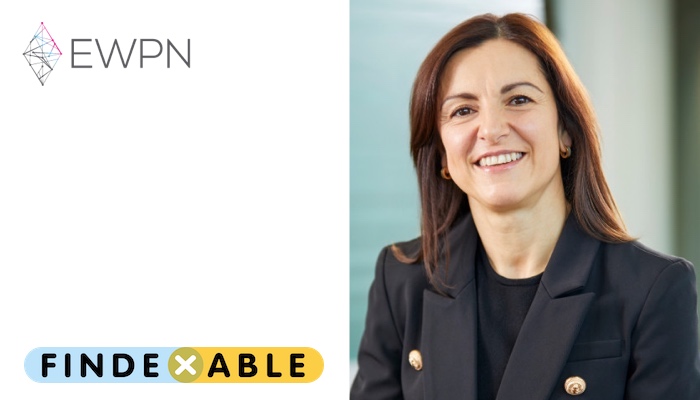How great would it be? – Issue 1
Interview with Miranda McLean, Executive Board Member, EWPN
1. What are the gaps in research around diversity and equal opportunity for women in fintech?
Recently, together with Banking Circle, we spoke to over 300 financial industry professionals to gather opinions and experiences of diversity and discrimination. Diversity has been a hot topic in recent years but has generally focused on gender issues. We wanted to identify if other areas of discrimination are prevalent in the financial services sector, including age, race, sexuality, ethnicity, disability, religion and political beliefs. For this reason our research involved individuals working across all areas of banking and finance. Our aim was to find out if enough is being done to embrace inclusion and diversity – or if the industry is simply paying lip service while in reality, nothing actually changes.
The results of this study, published in our inaugural diversity report ‘End of the Tunnel – Seeking the light: Inclusion, diversity and the end of institutionalised tunnel-vision’, showed that 37% feel there is a gender imbalance in their current company and 38.5% felt they have not been given the same opportunities and/or reward as others due to their gender. More than half (59%) of our respondents do not feel the industry does enough to encourage gender parity and diversity with respect to opportunity and pay.
As we explained in our End of the Tunnel report, the biggest issue is often that the majority is simply unaware of the issues facing the minority. Increasing diversity within any organisation will increase awareness of the multitude of issues different groups face, highlighting issues that could be causing discrimination.
It is our hope that in bringing these issues to the fore, we can raise awareness and begin to make real change for the sake of future generations. As such, we plan to run this study regularly to gain up to date insights as well as to track market change over the coming years.
Future research should involve discovering the attitudes, personal experiences, expectations and understanding of individuals, as well as the current state of the market. For example, the proportion of women in different roles and levels in FinTech organisations, salaries and career prospects of women vs men in the same role. More in-depth research, which gains insights from people of all ages, genders, backgrounds, professional experience and levels, from across the entire FinTech industry, would help to further raise awareness of the issues – the first step in bringing about meaningful change.
2. How would better research help drive equal opportunity and improved financial products/services?
With each generation our society becomes more diverse, yet the workforce within financial services has not kept up and does not mirror the rich diversity of society. However, those who are not affected often do not notice the imbalance, meaning that change is unlikely.
In-depth, market-wide, robust research which uncovers the true state of discrimination in the industry today would go a long way to bringing the issue to the fore, putting it on the agenda, and providing the best possible chance of bringing about change.
McKinsey and Company’s report ‘Delivering Through Diversity’[i] showed that companies in the top 25% for ethnic diversity were 33% more likely to achieve profit above the industry average. The report also showed that more ethnically diverse boards were 43% more likely to outperform on profits and those in the top 25% for gender diversity were 21% more likely to achieve profit above the industry average.
Specialist recruiter Randstad recently claimed that the UK economy would be £24bn bigger if those from BAME backgrounds progressed in their careers at the same pace as their white colleagues[ii].
3. What are the first steps to achieving this?
Diversity breeds creativity, innovation, wellness, employee satisfaction, lower staff turnover, better customer service, increased profits. Committing to industry-wide, collaborative research would help to identify the current failings and understand the ways the sector can fix the problem. This is not a competitive issue, so the competitive barriers should come down.
No organisation, individual or even government can have the necessary impact in silo. We need to stand together, work together, learn together and make changes together. If we sit back and wait for change to happen, it won’t.
EWPN is an organisation that strives to create more opportunities for women and minorities, as well as being a champion for a more diverse and inclusive industry for all. Members include women – and men who recognise the critical issues the EWPN seeks to address – from all areas and all levels in the cards & payments, FinTech and Banking industries.
We are creating a positive arena where women can come together to discuss issues relating to women in the industry, we can begin to bridge the gender gap, pushing more diversity and inspiring future generations of girls into the sector. Our aim is to get more women and men involved from across the industry, working together to increase equality and diversity and helping us to make a bigger impact and bring about change more quickly
This is how we need to move forward – the industry must come together, share intelligence, feedback, experiences, resources and successes. Alone, we can do very little to change the market for the better, but together we are far stronger, and have an exciting, inclusive and diverse future ahead of us.
The Global Fintech Index by Findexable launches worldwide on 4 December 2019
Follow us on @findexable
[i] https://www.mckinsey.com/business-functions/organization/our-insights/delivering-through-diversity
[ii] https://www.randstad.co.uk/employers/areas-of-expertise/financial-services/diversity-report-2018.pdf

